Able Archer 83
description: 1983 NATO military exercise almost leading to nuclear war
14 results
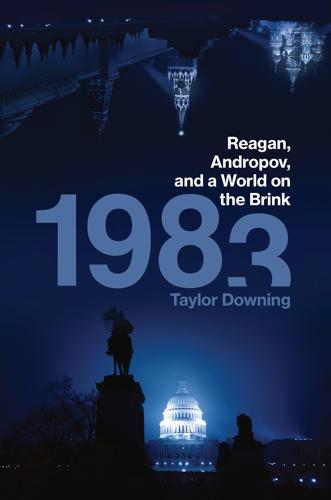
1983: Reagan, Andropov, and a World on the Brink
by
Taylor Downing
Published 23 Apr 2018
Quoted in Shultz, Turmoil and Triumph, p.113. 12 Reagan, The Reagan Diaries, p.101. 13 This author filmed the French and Italian peacekeeping forces who proudly landed at Beirut docks in September 1982, the Italians with feathered plumes in their helmets, and then filmed the US Marines, who chose to make a show of coming ashore from landing craft, Iwo Jima-style, on the beaches to the south of the city. 14 Reagan, The Reagan Diaries, 23 April 1983, p.147. 15 Morgan, Reagan, p.226. 16 Hansard, 24 October 1983, quoted in Richard Aldous, Reagan and Thatcher, p.144. 17 Margaret Thatcher, The Downing Street Years, p.331. 18 Thatcher, The Downing Street Years, pp.332–3; and Aldous, Reagan and Thatcher, pp.151–3. 19 Reagan, An American Life, pp.457–8 and 466. 13 Kremlin Paranoia 1 Igor Andropov is quoted in Volkogonov, The Rise and Fall of the Soviet Empire, p.371. 2 Ibid., p.370. 3 Chazov’s untranslated Russian memoirs, published in 1991, are quoted in Volkogonov, The Rise and Fall of the Soviet Empire, pp.375–6. 4 Gorbachev, Memoirs, p.151. 5 Geoffrey Howe, Conflict of Loyalty, pp.349–50. 6 Thatcher, The Downing Street Years, p.450. 7 Gates, From the Shadows, pp.290–1. 8 Volkogonov, The Rise and Fall of the Soviet Empire, pp.376–8. 14 Able Archer 83 1 Richard Dannatt, Boots on the Ground, p.191. 2 NSA: The 1983 War Scare, Vol II, Briefing Book No. 427, Documents 3 & 4 Autumn Forge 83; and Jones, Able Archer 83, pp.25–6. 3 NSA: PFIAB, The Soviet ‘War Scare’, 15 February 1990, Top Secret, p.xii. 4 NSA: The 1983 War Scare, Vol II, Briefing Book No. 427; Documents 6a & 6b NATO Exercise Able Archer 83 Scenario, NATO Historical Files; and see also Jones, Able Archer 83, pp.1–2. 5 NSA: Air Force Seventh Air Division, Ramstein, Exercise Able Archer 83, SAC ADVON, After Action Report, 1 December 1983, p.5. 6 FLASHBACK: Interview with Spike Callender. 7 FLASHBACK: Interview with Eugene Gay. 8 Andrew and Gordievsky, KGB: The Inside Story, pp.502–3. 9 Jones, Able Archer 83, p.26. 10 NSA: The 1983 War Scare, Vol II, Briefing Book No. 427, Documents 6a & 6b NATO Exercise Able Archer 83 Scenario, NATO Historical Files. 11 CIA: Fischer, A Cold War Conundrum, p.69. 12 FLASHBACK: Interview with Robert McFarlane. 13 Jones, Able Archer 83, p.30. 14 Ibid., p.33–4. 15 Combat Alert 1 Gorbachev, Memoirs, p.151. 2 FLASHBACK: Interview with Robert Gates. 3 Isaacs and Downing, Cold War, p.391. 4 CIA: Fischer, A Cold War Conundrum, p.17. 5 Romanov’s speech was reported in Pravda on 6 November 1983; see Jones, Able Archer 83, p.37. 6 NSA: PFIAB, The Soviet ‘War Scare’, Top Secret, p.64ff. 7 NSA: Interview with Vitalii Tsygichko in December 1990 by John G.
…
Quoted in Shultz, Turmoil and Triumph, p.113. 12 Reagan, The Reagan Diaries, p.101. 13 This author filmed the French and Italian peacekeeping forces who proudly landed at Beirut docks in September 1982, the Italians with feathered plumes in their helmets, and then filmed the US Marines, who chose to make a show of coming ashore from landing craft, Iwo Jima-style, on the beaches to the south of the city. 14 Reagan, The Reagan Diaries, 23 April 1983, p.147. 15 Morgan, Reagan, p.226. 16 Hansard, 24 October 1983, quoted in Richard Aldous, Reagan and Thatcher, p.144. 17 Margaret Thatcher, The Downing Street Years, p.331. 18 Thatcher, The Downing Street Years, pp.332–3; and Aldous, Reagan and Thatcher, pp.151–3. 19 Reagan, An American Life, pp.457–8 and 466. 13 Kremlin Paranoia 1 Igor Andropov is quoted in Volkogonov, The Rise and Fall of the Soviet Empire, p.371. 2 Ibid., p.370. 3 Chazov’s untranslated Russian memoirs, published in 1991, are quoted in Volkogonov, The Rise and Fall of the Soviet Empire, pp.375–6. 4 Gorbachev, Memoirs, p.151. 5 Geoffrey Howe, Conflict of Loyalty, pp.349–50. 6 Thatcher, The Downing Street Years, p.450. 7 Gates, From the Shadows, pp.290–1. 8 Volkogonov, The Rise and Fall of the Soviet Empire, pp.376–8. 14 Able Archer 83 1 Richard Dannatt, Boots on the Ground, p.191. 2 NSA: The 1983 War Scare, Vol II, Briefing Book No. 427, Documents 3 & 4 Autumn Forge 83; and Jones, Able Archer 83, pp.25–6. 3 NSA: PFIAB, The Soviet ‘War Scare’, 15 February 1990, Top Secret, p.xii. 4 NSA: The 1983 War Scare, Vol II, Briefing Book No. 427; Documents 6a & 6b NATO Exercise Able Archer 83 Scenario, NATO Historical Files; and see also Jones, Able Archer 83, pp.1–2. 5 NSA: Air Force Seventh Air Division, Ramstein, Exercise Able Archer 83, SAC ADVON, After Action Report, 1 December 1983, p.5. 6 FLASHBACK: Interview with Spike Callender. 7 FLASHBACK: Interview with Eugene Gay. 8 Andrew and Gordievsky, KGB: The Inside Story, pp.502–3. 9 Jones, Able Archer 83, p.26. 10 NSA: The 1983 War Scare, Vol II, Briefing Book No. 427, Documents 6a & 6b NATO Exercise Able Archer 83 Scenario, NATO Historical Files. 11 CIA: Fischer, A Cold War Conundrum, p.69. 12 FLASHBACK: Interview with Robert McFarlane. 13 Jones, Able Archer 83, p.30. 14 Ibid., p.33–4. 15 Combat Alert 1 Gorbachev, Memoirs, p.151. 2 FLASHBACK: Interview with Robert Gates. 3 Isaacs and Downing, Cold War, p.391. 4 CIA: Fischer, A Cold War Conundrum, p.17. 5 Romanov’s speech was reported in Pravda on 6 November 1983; see Jones, Able Archer 83, p.37. 6 NSA: PFIAB, The Soviet ‘War Scare’, Top Secret, p.64ff. 7 NSA: Interview with Vitalii Tsygichko in December 1990 by John G.
…
In reality, the always paranoid leader was bedridden, filled with worries and concerns, and being misled by those he listened to about the actions and responses of their number one enemy, the United States. And now the last and most agonising phase was fast approaching that would bring the world to the brink of nuclear catastrophe. 14 Able Archer 83 In early November 1983, at the peak of the heightened level of tension between the Soviet Union and the West, NATO began an exercise by the name of Able Archer 83. Able Archer was an annual war game known as a Command Post Exercise. It did not involve sending troops out into the field. It did not require the deployment of tanks or armoured vehicles to their battle stations.
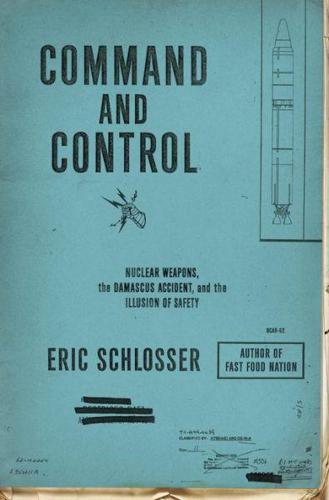
Command and Control: Nuclear Weapons, the Damascus Accident, and the Illusion ofSafety
by
Eric Schlosser
Published 16 Sep 2013
According to a Pentagon report, at one point during the fighting, unable to contact the Navy for fire support, “a frustrated Army officer used his AT&T credit card on an ordinary pay telephone to call Ft. Bragg, NC [the headquarters of the 82nd Airborne Division] to have them relay his request.” The week after the invasion, NATO staged a command-and-control exercise, Able Archer 83. It included a practice drill for NATO’s defense ministers, simulating the procedures to authorize the use of nuclear weapons. The KGB thought that Able Archer 83 might be a cover for a surprise attack on the Soviet Union. The timing of such an attack—a few weeks before the arrival of the Pershing IIs—seemed illogical. Nevertheless, “the KGB concluded that American forces had been placed on alert,” a Soviet agent later wrote, “and might even have begun the countdown to war.”
…
Nevertheless, “the KGB concluded that American forces had been placed on alert,” a Soviet agent later wrote, “and might even have begun the countdown to war.” A number of the Soviet Union’s own war plans called for using military exercises as a cover for a surprise attack on Western Europe. While NATO played its war game, Soviet aircraft in Poland and East Germany prepared to counterattack. Able Archer 83 ended uneventfully on November 11—and NATO’s defense ministers were totally unaware that their command-and-control drill had been mistaken for the start of a third world war. On the evening of November 20, American fears of nuclear war reached their peak, as ABC broadcast The Day After, a made-for-television movie.
…
serious problems with the World Wide Military Command and Control System: See Pearson, WWMCCS: Evolution and Effectiveness, pp. 315-17; and “JTF Operations Since 1983,” George Stewart, Scott M. Fabbri, and Adam B. Siegel, CRM 94-42, Center for Naval Analyses, July 1994, pp. 23-31. “a frustrated Army officer used his AT&T credit card”: “JTF Operations Since 1983,” p. 28. Able Archer 83: See Gates, From the Shadows, pp. 270-73; Hoffman, Dead Hand, pp. 94-95; Fischer, “Cold War Conundrum.” “the KGB concluded that American forces”: The agent was Oleg Gordievsky. He worked not only for the KGB but also for British intelligence. His quote is from Fischer, “Cold War Conundrum.” A number of the Soviet Union’s own war plans: See Hoffman, Dead Hand, p. 94.
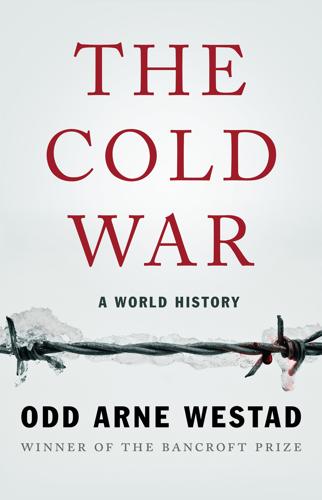
The Cold War: A World History
by
Odd Arne Westad
Published 4 Sep 2017
Quoted in Kristina Spohr, The Global Chancellor: Helmut Schmidt and the Reshaping of the International Order (Oxford: Oxford University Press, 2016), 111. 4. Ronald Reagan, televised address 5 September 1983, PPP Reagan 1983, 1227. 5. Quoted in Nate Jones, “First Page of Paramount Able Archer 83 Report Declassified by British Archive,” 27 October 2014, https://nsarchive.wordpress.com/2014/10/27/first-page-of-paramount-able-archer-83-report-declassified-by-british-archive-remainder-of-the-detection-of-soviet-preparations-for-war-against-nato-withheld/. See also Nate Jones, ed., Able Archer 83: The Secret History of the NATO Exercise That Almost Triggered Nuclear War (New York: New Press, 2016). 6. Homily of His Holiness John Paul II, Warsaw, 2 June 1979, https://w2.vatican.va/content/john-paul-ii/en.html. 7.
…
This crime against humanity must never be forgotten, here or throughout the world.”4 In November 1983 things got really ugly. For years NATO had held military exercises, usually in the fall, in order to test alliance readiness to withstand a sudden Warsaw Pact attack. The 1983 version, codenamed Able Archer ’83, simulated conflict escalation up to the point when nuclear strikes were launched. The Soviets had been notified about the exercise beforehand, and knew quite a bit about it from their own intelligence sources. Still, when Able Archer got underway, tensions grew. The CIA reported later that Moscow had placed “Soviet air units in East Germany and Poland on heightened readiness.”5 There is no reason to believe that the Soviet leaders thought an attack was imminent, but Moscow’s reaction showed just how volatile and dangerous the overall situation was.
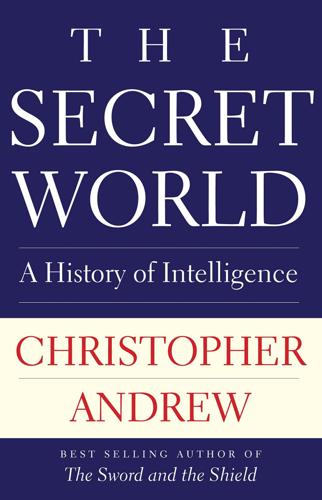
The Secret World: A History of Intelligence
by
Christopher Andrew
Published 27 Jun 2018
The best analysis of recently declassified documents on the crisis is Khuri, ‘New Light on Able Archer ’83’. 98. Some of the KGBR YAN directives are published in Andrew and Gordievsky (eds.), Instructions from the Centre, ch. 4. 99. Gordievsky, Next Stop Execution, p. 262. 100. Howe, Conflict of Loyalty, pp. 349–50. 101. ‘Implications of Recent Soviet Military-Political Activities’, SNIE 11-10-84/JX. 102. Gates, From the Shadows, p. 273. 103. US Executive Office, President’s Foreign Intelligence Advisory Board, ‘The Soviet “War Scare”’, 15 Feb. 1990 (declassified Oct. 2015), pp. vi, viii, 7 (cited in Khuri, ‘New Light on Able Archer ’83’, p. 37). The PFIAB report is available online at: http://nsarchive.gwu.edu/nukevault/ebb533-The-Able-Archer-War-Scare-Declassified-PFIAB-Report-Released/2012-0238-MR.pdf. 104.
…
‘Outrageous military psychosis’, he declared, had taken over the United States. ‘The Reagan administration, in its imperial ambitions, goes so far that one begins to doubt whether Washington has any brakes at all preventing it from crossing the point at which any sober-minded person must stop.’ Alarm within the Centre reached a climax during the NATO exercise ‘Able Archer 83’, held in November 1983 to practise nuclear-release procedures for a simulated DEFCON 1 coordinated nuclear attack. For a time both the Kremlin and the KGB leadership were haunted by the fear that the exercise might be intended as cover for a real nuclear first strike. Some KGB officers stationed in the West were by now more concerned by the alarmism in the Centre than by the threat of Western surprise attack.97 The first reliable intelligence on RYAN to reach the West came from Oleg Gordievsky, following his posting to the KGB London residency in June 1982.
…
Steury (ed.), Sherman Kent and the Board of National Estimates: Collected Essays (Washington, DC: CIA Center for the Study of Intelligence, 1994) Kenyon, John Philipps, Robert Spencer, Earl of Sunderland, 1641–1702 (London: Longmans, 1958) Kerautret, Michel, ‘Frédéric II et Napoléon (1800–1870)’, Revue de l’Institut Napoléon, no. 181 (2000) Kerner, Alex, ‘Espionage and Field Intelligence in the Conquest of Mexico, 1519–1521’, Journal of Military History, vol. 78 (2014), no. 2 Kessler, Pamela, Undercover Washington (McLean, Va: EPM Publications, 1992) Ketchum, Robert, Victory at Georgetown: The Campaign That Won the Revolution (Georgetown, Washington, DC: Georgetown University Press, 1990) Khuri, Nick, ‘New Light on Able Archer ’83: The Dynamics of Misperception, Escalation, and De-Escalation’, MPhil thesis (University of Cambridge, 2016) Kieckhefer, Richard, ‘The Office of Inquisition and Medieval Heresy: The Transition from Personal to Institutional Jurisdiction’, Journal of Ecclesiastical History, vol. 46 (1995) Kiesling, Eugenia C., ‘France’, in Richard F.

Gorbachev: His Life and Times
by
William Taubman
Fortunately, Lieutenant Colonel Stanislav Petrov concluded that the alarm was false. Meanwhile, however, the Americans and British were preparing to conduct the “Able Archer 83” war game, in which NATO’s supreme commander would request permission to use nuclear weapons and receive it. When Able Archer began in early November, the chief of the Soviet General Staff took cover in his command bunker under Moscow and ordered a “heightened alert” for some land-based Soviet forces. Luckily, in the end, Soviet monitoring of Able Archer 83 confirmed that this was just an exercise, not cover for an actual attack.34 The last thing the USSR needed under these circumstances was decrepit political leaders.
…
Clicking on a page number will take you to the ebook location that corresponds to the beginning of that page in the print edition. For a comprehensive list of locations of any word or phrase, use your reading system’s search function. Page numbers in italics refer to illustrations. Abalkin, Leonid, xv, 310, 311, 360, 430, 521, 523–26, 575 ABC News, 408, 642, 644–45, 647 Abkhazia, 230, 603 “Able Archer 83” war game, 171 ABM Treaty, 300 abortion, 70–71 Abuladze, Tengiz, xv, 248, 429 Academy of Sciences, 141, 186, 207, 241, 370, 429, 430, 457, 511, 523 Academy of Social Sciences, 135, 183, 345 Achalov, Vladimir, 601 Adamovich, Ales, xv, 249, 443, 446, 448 “Address to the People and the President,” 531 Afanasyev, Viktor, xv, 247, 270, 460 Afanasyev, Yuri, xv, 359, 432–33, 439, 444, 454, 455, 506, 576 Afghanistan, 170, 173, 176, 180, 195, 254, 267, 268, 271–75, 286, 291, 292, 305, 376–78, 391, 394, 398, 403, 412, 468, 556, 587 “Afghan Lobby,” 274 After the Kremlin (Gorbachev), 681 Against the Grain (Yeltsin), 736n, 739n-40n Aga Khan, Sadruddin, 290 Aga Khan IV, Karim, 290 Aganbegyan, Abel, 187, 188, 219, 253, 310, 384, 529 Agitprop, 150 Agroprom, 237 AIDS, 399 Aitmatov, Chingiz, xv, 430, 449, 511 Akhmadullina, Bella, 91 Akhmatova, Anna, xv, 91, 317, 416 Akhromeyev, Sergei, xv, 217, 292, 299, 395, 399, 401, 408, 499, 502, 543, 553, 621 Aksyonov, Vasily, 340 Albright, Madeleine, 682 Aleksandrov-Agentov, Andrei, xv, 222, 223, 256, 257 Aleksandrova, Tamara, 605 Alexander I, Tsar of Russia, 260 “alienation,” 319 Aliev, Geidar, xv, 181, 207, 210, 221, 233, 320 Alksnis, Viktor, 532 Allison, Graham, xv, 590–92, 656 All-Union Komsomol Project, 130–33 Allyn, Bruce, 656 Alma-Ata, 206, 367, 608, 637, 638, 644 Alone with Myself (Gorbachev), 667, 670 ambitsioznyi (ambitious), 40 “Anatomy of Hatred, The,” 637 Andreas, Dwayne, 458 Andreotti, Giulio, xv, 387, 390, 568, 594 Andrews Air Force Base, 401, 550–51 Andreyeva, Nina, xv, 337, 342–51, 355, 356, 370, 383, 412, 586 Andropov, Tatyana Filipovna, 138 Andropov, Yuri, xv, 121, 131, 138–44, 139, 140, 146, 147, 160–62, 170–77, 176, 179–81, 184, 187, 188, 190–92, 207, 209, 212, 217, 227, 232, 233, 253, 267, 333, 340, 372, 405, 584, 604, 640, 651, 689, 713n, 718n-19n Angel of Light (Oates), 406 Angola, 170, 398 Anka, Paul, 683 “anti-cosmopolitanism” campaign, 45 Arafat, Yasser, 631 Aragon, Louis, 127 Arbatov, Georgy, xv-xvi, 123, 141–43, 180, 188, 253, 254, 272, 281, 282, 328, 342, 384, 419 Archangelskoe, 523, 524, 603, 619 Archival-Bibliographical Center, 600, 601 Argumenty i fakty, 338, 454–55 Aristophanes, 156 Arkhyz (resort town), 145, 145, 565, 570 Armenia, 365, 368–70, 423–26, 441, 451, 504, 562, 579 Armenian earthquake (1988), 423–26 Aspen Lodge, 555 Assumption Cathedral, 417 Astor, Brooke, 405 “asymmetrical” military response, 393 Atlantic Charter, 495 Attali, Jacques, 569 Australia, 666, 667 Austria, 483, 486 Azerbaijan, 130, 160, 365, 366–71, 426, 451, 504–5, 628 Azerbaijani National Front, 504–5 Aziz, Tariq, 589 Baird amendment, 497 Bakatin, Vadim, xvi, 461, 506, 509, 511, 516, 532, 577, 625–26 Baker, Howard, 396 Baker, James, xvi, 458, 468–70, 472–74, 487, 489, 490, 493, 498, 546–50, 552–54, 558, 563, 566, 567, 570, 574, 588, 589, 592, 624, 632, 636–38 Baker, Susan, 473 Baklanov, Grigory, xvi, 247, 345, 360–61 Baklanov, Oleg, xvi, 296, 411, 533, 577, 601, 607–9, 612 Baku, Azerbaijan, 130, 160, 369, 504–5 Baku Naval School, 41 Balayan, Zori, 368, 369 Baltic states, 62, 310, 370, 373, 434, 435, 436, 444, 451, 452, 454, 464, 470, 500, 511, 547, 554, 555, 575, 577, 588, 631, 637, 640 see also Estonia; Latvia; Lithuania Balz, Dan, 289 banya (bathhouse), 50 Barakov, Innokenty, 116 Barents Sea, 170–71 Barrass, Gordon, 171 Barry, Philip, 288–89 Barvikha sanatorium, 361 “Basic Principles” plan, 529 Bazikova, Raisa, 102 BBC, 397, 470, 612 Bek, Aleksandr, 317 Bekova, Zoya, xvi, 44, 48 Belbek airbase, 605, 614 Belgium, 117, 150–51 Belgrade, 224, 346, 347 Belinsky, Vissarion, 29, 30 Belkin, Aron, 5 Belknap, USS, 495 Belovezhskaya Pushcha, 629, 634, 661 Beria, Lavrenty, 58, 640 Berlin, 186, 263, 292–93, 397, 427, 462–65, 483–88, 490–91, 494, 559, 563–64, 599, 685 Berlin crisis (1958), 487 Berlinguer, Enrico, 195 Berlin Wall, 427, 462–65, 483, 486–87, 490–91, 559, 599, 685 Bertelsmann (publisher), 657 Beschloss, Michael, 636, 638 Bessmertnykh, Aleksandr, 253, 600, 600 Bibikov, Sergei, 82 Bible, 114, 358, 581 Biden, Joseph, 683 “Big Five,” 256 Bikkenin, Nail, xvi, 46, 230, 364, 364 Bilak, Vasil, xvi, 381 Billington, James, xvi, 416, 417 biological weapons, 549, 557, 558, 564, 641 Biological Weapons Convention (1972), 558 Bishop, K.
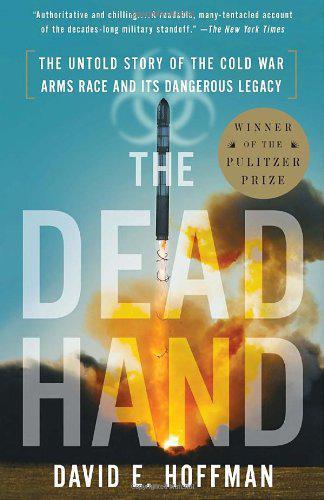
The Dead Hand: The Untold Story of the Cold War Arms Race and Its Dangerous Legacy
by
David Hoffman
Published 1 Jan 2009
That they could survive and fight a nuclear war? Soviet paranoia reached a zenith at the time of a planned NATO exercise in Europe scheduled for November 2-11. The exercise, Able Archer '83, was designed to practice the procedures for a full-scale simulated release of nuclear weapons in a European conflict. The Soviets had long feared that training exercises could be used as a disguise for a real attack; their own war plans envisioned the same deception. According to Gordievsky, two features of Able Archer '83 caused particular alarm in Moscow. First, the procedures and message formats for the shift from conventional to nuclear war were quite different from those on previous exercises.
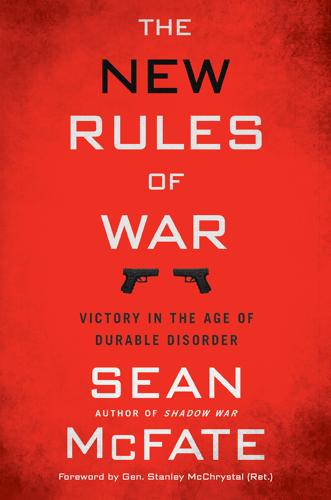
The New Rules of War: Victory in the Age of Durable Disorder
by
Sean McFate
Published 22 Jan 2019
The Thirty-Six Stratagems: The material presented here is based on Harro von Senger, The Book of Stratagems: Tactics for Triumph and Survival, ed. and trans. Myron B. Gubitz (New York: Penguin Books, 1993), 369–70. Index The pagination of this digital edition does not match the print edition from which the index was created. To locate a specific entry, please use your ebook reader's search tools. Able Archer 83, 21 Abraham Lincoln, USS, 222–23 Acapulco, drug war, 171–78 Active defense, 137–38 Active duty vs. reserves, realignment of, 38–40 “Active measures,” 201, 202, 203, 214 Aegis Defense Services, 136 Afghanistan-Pakistan Hands Program, 41 Afghanistan War, 1, 158 counterinsurgency, 90–91, 93, 94, 95 military contractors, 101, 102, 128–31, 167–68 myth of bifurcated victory, 3, 232, 233 nation-building, 4, 93–94, 150 troop “surge,” 4, 167–68 “Agency,” 284n Aircraft carriers, 12, 18, 38, 46 Air power, 17–19, 99 AK-47s, 51, 116, 147, 148, 195 Al-Assad, Bashar, 105–6 Alexander the Great, 126 “Algorithmic warfare,” 50–51 Alice in Wonderland, 11 Al-Jubeir, Adel, 70 Al-Qaeda, xiii–xv, 96, 135, 154, 206, 230 Al-Zarqawi, Abu Musab, xiii–xv Amenas hostage crisis, 152 American Civil War, 64, 90, 159, 235 “American exceptionalism,” 80 American Foreign Legion, 99–102 American Idol (TV show), 112 American Indians, 97, 180, 228 American Revolution, 92–93, 206, 228, 229–30 Ananus ben Ananus, 87 Ancient Greece, 51, 126 Ancient Rome, 6, 76, 126, 157, 179, 229 First Jewish-Roman War, 83–90, 96 Antietam, USS, 54 Apple, “Get a Mac” ad campaign, 108–9, 111 Arab Spring, 162–63, 169, 217 Arbenz, Jacobo, 208–11 Armas, Castillo, 210, 211 Armed politics, war as, 57, 184–85, 221, 222–23 “Armed social work,” 94 Army Special Forces, U.S.
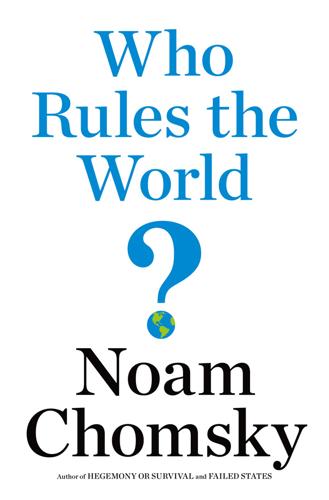
Who Rules the World?
by
Noam Chomsky
Statement by Hugo Chavez at 61st United Nations General Assembly, 20 September 2006, http://www.un.org/webcast/ga/61/pdfs/venezuela-e.pdf. 2. National Security Archive, “Kissinger Gave Green Light for Israeli Offensive Violating 1973 Cease-Fire,” press release, 7 October 2003, http://nsarchive.gwu.edu/NSAEBB/NSAEBB98/press.htm. 3. Nate Jones, “The Able Archer 83 Sourcebook,” National Security Archive, 7 November 2013, http://nsarchive.gwu.edu/nukevault/ablearcher/. 4. Jillian Kestler-D’Amours, “Opportunity Missed for Nuclear-Free Middle East,” Inter Press Service, 2 December 2012. 5. On bombing of dikes as a war crime, see for example Gabriel Kolko, “Report on the Destruction of Dikes: Holland, 1944–45 and Korea, 1953,” in Against the Crime of Silence: Proceedings of the Russell International War Crimes Tribunal, Stockholm and Copenhagen, 1967, ed.
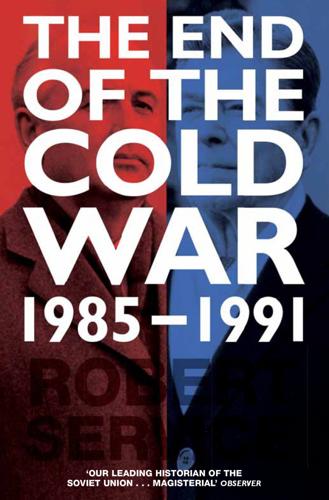
The End of the Cold War: 1985-1991
by
Robert Service
Published 7 Oct 2015
Kovalëv told Gromyko that the introduction of SS-20s brought no gain and much insecurity for the USSR.37 Relations between the superpowers were worse than ever. Andropov felt edgy about Reagan’s possible objectives: he thought him mad enough to order a nuclear Blitzkrieg against the USSR. In November 1983 there was a NATO command post exercise – Able Archer 83 – to deal with a potential ‘escalation’ of trouble between America and its allies and the Warsaw Pact. It involved an attempt to experiment with new methods of silent communication, and the idea was to test out how the Western powers might eventually opt to attack the Soviet Union. As reports reached Moscow about what was afoot, the worry arose that the exercise might be a subterfuge disguising a build-up towards a real war.
…
.: passim see also Gorbachëv, Mikhail; Reagan, Ronald; Shevardnadze, Eduard; Shultz, George; Yakovlev, Alexander France Eureka project ref1 Gorbachëv’s visit to (1985) ref1 relations with US ref1 relations with USSR ref1, ref2, ref3, ref4 see also Mitterand, François French Communist Party ref1, ref2 Friedman, Milton ref1, ref2 Frolov, Ivan ref1, ref2 G7 summits (1990) (Houston) ref1, ref2 (1991) (London) ref1, ref2 Gaddafi, Muammar ref1, ref2, ref3 Gandhi, Rajiv ref1, ref2, ref3, ref4, ref5 Gapurov, Mukhamednazar ref1 Garland, Sean ref1 Gates, Robert ref1, ref2, ref3, ref4, ref5, ref6, ref7, ref8 General Department (USSR) see under Communist Party of the Soviet Union General Staff Academy ref1 Geneva summit (1985) ref1, ref2, ref3, ref4, ref5, ref6 Genscher, Hans-Dietrich ref1, ref2, ref3, ref4, ref5, ref6 Georgia (USSR) ref1, ref2, ref3 Armenians in ref1 history of ref1 relations with USSR ref1, ref2 ref3 Russian invasion (2008) ref1 and Shevardnadze ref1, ref2, ref3, ref4, ref5, ref6, ref7, ref8, ref9, ref10, ref11, ref12, ref13 Tbilisi massacre (1989) ref1, ref2, ref3, ref4, ref5 German Democratic Republic see East Germany German reunification ref1, ref2, ref3, ref4, ref5, ref6, ref7, ref8, ref9, ref10, ref11, ref12, ref13 and Bush ref1, ref2, ref3 and Gorbachëv ref1, ref2, ref3, ref4, ref5, ref6, ref7 Gorbachëv’s deal with Kohl over ref1 and Kohl ref1, ref2, ref3, ref4, ref5, ref6, ref7 Kohl’s Ten-Point Plan for ref1, ref2, ref3 Germany ref1, ref2 and NATO membership ref1, ref2, ref3, ref4, ref5 recognizing of post-war border with Poland ref1 see also East Germany; West Germany Gierek, Eduard ref1, ref2 Glavlit ref1, ref2 Gorbachëv, Mikhail ref1, ref2 American opinion on ref1 and Afghan war ref1, ref2, ref3, ref4, ref5, ref6, ref7, ref8, ref9 and Africa ref1 and agriculture ref1, ref2, ref3 and Andropov ref1, ref2 and Armed Forces leaders ref1 and Asia ref1 appeal for economic assistance ref1, ref2, ref3, ref4 appointment of reformers to leading posts ref1 ‘asymmetrical response’ programme ref1 attributes and qualities ref1, ref2, ref3, ref4, ref5, ref6, ref7, ref8 awarded Nobel Peace Prize ref1 background ref1, ref2 and Baltic states ref1, ref2 and biological weapons question ref1 and Bush ref1, ref2, ref3, ref4, ref5, ref6, ref7, ref8 and Camp David summit (1990) ref1 change in title from Chairman of Supreme Soviet Presidium to President ref1 and Chernobyl power station disaster ref1, ref2, ref3 and Chinese–Soviet relations ref1, ref2, ref3, ref4, ref5, ref6, ref7, ref8 and constitutional reform ref1, ref2 contribution to end of Cold War ref1 coup against, failed (1991) ref1, ref2, ref3 criticism of his policies ref1, ref2, ref3, ref4, ref5, ref6, ref7, ref8, ref9, ref10, ref11 and Cuba ref1 decline in international status ref1 as deputy leader to Chernenko ref1 and dismantling of Soviet Union ref1 and East Germany ref1, ref2 and Eastern Europe ref1, ref2, ref3, ref4, ref5, ref6, ref7, ref8 and the Eastern Europe revolutions ref1, ref2, ref3 economy and economic reforms ref1, ref2, ref3, ref4, ref5, ref6, ref7, ref8, ref9, ref10, ref11, ref12, ref13 elected as leader (1985) ref1 and Ethiopia ref1 and 500 Days programme ref1, ref2 and Geneva Summit (1985) ref1 German reunification and deal with Kohl over ref1, ref2, ref3, ref4, ref5, ref6, ref7, ref8 and Germany’s NATO membership ref1, ref2 global image and popularity ref1 government structure reforms ref1 and Gromyko ref1, ref2, ref3, ref4, ref5 and Helsinki summit (1990) ref1 and human rights ref1, ref2 industrial reforms ref1, ref2 and Intermediate-Range Nuclear Forces Treaty negotiations ref1 and internal political reform ref1 invited to London by Thatcher (1984) ref1 and Iraq’s invasion of Kuwait (1990) ref1, ref2, ref3 January declaration ref1, ref2, ref3, ref4, ref5, ref6, ref7, ref8 and Kohl ref1, ref2, ref3, ref4, ref5, ref6, ref7 and Libyan crisis ref1, ref2 and Lithuania ref1, ref2 and Malta summit (1989) ref1 marriage ref1, ref2 and Marxism-Leninism ref1, ref2 meeting with John Paul II (1989) ref1 and Mitterrand ref1, ref2 and Moscow summit (1988) ref1 and nuclear disarmament and arms reduction ref1, ref2, ref3, ref4, ref5, ref6, ref7, ref8, ref9, ref10, ref11, ref12, ref13, ref14, ref15, ref16, ref17, ref18, ref19, ref20, ref21, ref22, ref23 and perestroika ref1, ref2, ref3, ref4, ref5, ref6, ref7, ref8 Perestroika (book) ref1 and Polish crisis ref1, ref2, ref3, ref4 political career ref1, ref2 public appeal ref1, ref2 and Reagan ref1, ref2, ref3, ref4, ref5, ref6, ref7, ref8, ref9, ref10, ref11 reduction of Soviet forces and withdrawal of troops from Eastern Europe ref1, ref2, ref3, ref4, ref5, ref6 reform team behind ref1 resignation ref1 retreat over reform and dropping of prominent reformers ref1, ref2 and Reykjavik summit (1986) ref1, ref2, ref3, ref4 Rust affair and sackings initiated in armed forces ref1 and Schultz ref1, ref2, ref3 and Shevardnadze ref1, ref2, ref3, ref4, ref5, ref6, ref7, ref8, ref9 and Soviet–Far East relations ref1 speeches to Party Congress ref1, ref2 and Strategic Defense Initiative ref1, ref2, ref3, ref4, ref5, ref6, ref7, ref8, ref9, ref10, ref11, ref12, ref13, ref14, ref15 temperament ref1 and Thatcher ref1, ref2, ref3, ref4, ref5, ref6 and trade relations with US ref1 and Ustinov ref1 visit to China (1989) ref1 visit to Czechoslovakia (1987) ref1 visit to London (1989) ref1 visit to New York and speech to UN General Assembly (1988) ref1 visit to Paris (1985) ref1 and Warsaw Pact ref1 and Washington summit (1987) ref1, ref2, ref3 and West European leaders ref1, ref2, ref3, ref4, ref5, ref6, ref7, ref8, ref9, ref10, ref11, ref12, ref13 and Western Europe ref1, ref2, ref3, ref4, ref5, ref6, ref7 and withdrawal of troops from Afghanistan ref1, ref2, ref3, ref4, ref5, ref6 and withdrawal of troops from East Germany ref1, ref2 and world communist movement ref1, ref2 and Yeltsin ref1, ref2, ref3 Gorbachëva, Raisa ref1, ref2, ref3, ref4, ref5, ref6, ref7, ref8, ref9, ref10, ref11, ref12, ref13 Gordievski, Oleg ref1, ref2, ref3 grain embargo, lifting of (1981) ref1, ref2, ref3 Grenada, US invasion of (1983) ref1 Grey, Earl ref1 Grinevski, Oleg ref1, ref2, ref3 Grishin, Viktor ref1 Gromov, Boris ref1 Gromyko, Anatoli ref1 Gromyko, Andrei ref1, ref2, ref3, ref4, ref5, ref6, ref7 and Afghan War ref1, ref2, ref3 and arms control talks ref1 becomes Chairman of the Supreme Soviet ref1 criticism of Gorbachëv’s arms reduction stance ref1, ref2 and Czechoslovakia ref1 easing out of the Politburo by Gorbachëv ref1 and Gorbachëv ref1, ref2, ref3, ref4, ref5 and Ministry of Foreign Affairs ref1, ref2, ref3 and Poland ref1, ref2 visit to US (1984) ref1 Grósz, Károly ref1, ref2, ref3 GRU (Main Intelligence Administration) ref1, ref2 Haig, Alexander ref1, ref2, ref3, ref4 Hall, Gus ref1, ref2 Hannaford, Pete ref1, ref2 Hart, Gary ref1 Hartman, Arthur ref1, ref2, ref3 Havel, Václav ref1, ref2 Healey, Denis ref1, ref2 Helms, Jesse ref1, ref2, ref3 Helsinki Final Act (1975) ref1, ref2, ref3 Helsinki summit (1990) ref1 Heritage Foundation ref1 Heston, Charlton ref1 Hill, Charles ref1, ref2, ref3, ref4 Hinckley, John ref1 Holland, Stuart ref1 Honecker, Erich ref1, ref2, ref3, ref4, ref5, ref6, ref7, ref8, ref9, ref10, ref11, ref12, ref13, ref14 Hong Kong ref1 Howe, Geoffrey ref1, ref2, ref3, ref4, ref5 Hoxha, Enver ref1 human rights in United States ref1 in USSR ref1, ref2, ref3, ref4, ref5, ref6, ref7, ref8, ref9, ref10, ref11, ref12, ref13, ref14, ref15, ref16, ref17, ref18, ref19, ref20 Humphrey, Gordon ref1 Hungary ref1, ref2, ref3, ref4, ref5, ref6, ref7, ref8, ref9, ref10 Hurd, Douglas ref1, ref2 Husák, Gustáv ref1, ref2, ref3, ref4, ref5, ref6, ref7, ref8, ref9, ref10 Hyett, Nell ref1 Iklé, Fred ref1, ref2 Iliescu, Ion ref1, ref2 intelligence ref1 Inter-Departmental Working Group (‘Little Five’) ref1 Intermediate-Range Nuclear Forces Treaty ref1, ref2, ref3 negotiations ref1 savings made by ref1 Senate and Supreme Soviet ratification of ref1, ref2, ref3 signing of ref1, ref2 International Department see under Communist Party of the Soviet Union International Fund of Assistance ref1 International Harvester Company ref1 International Monetary Fund ref1 Iran ref1 Iran–Contra scandal (1986) ref1, ref2, ref3 Iran–Iraq War ref1, ref2 Iraq ref1 invasion of Kuwait (1990) ref1, ref2, ref3, ref4, ref5 relations with USSR ref1, ref2, ref3 Islamic fundamentalism ref1 Israel ref1 Italian Communist Party ref1, ref2, ref3, ref4, ref5 Italy ref1 Jackson–Vanik amendment ref1, ref2, ref3, ref4, ref5, ref6, ref7, ref8 Jakes, Miklos ref1 jamming, radio and TV ref1, ref2, ref3, ref4, ref5 Japan ref1, ref2, ref3 and China ref1 economic success ref1, ref2, ref3 relations with US ref1 relations with USSR ref1, ref2 Shevardnadze’s visit to (1986) ref1 and South Kuriles question ref1 Toshiba scandal (1980) ref1 Jaruzelski, Wojciech ref1, ref2, ref3, ref4, ref5, ref6, ref7, ref8, ref9, ref10, ref11, ref12, ref13, ref14, ref15, ref16, ref17 Jiang Zemin ref1 John Paul II, Pope ref1, ref2, ref3, ref4, ref5, ref6 and Lithuania ref1 meeting with Gorbachëv (1989) ref1 visit to Poland (1987) ref1, ref2 Johnson, Lyndon ref1 Johnson, Thomas ref1, ref2 Kádár, János ref1, ref2, ref3, ref4, ref5, ref6, ref7, ref8 Kampelman, Max ref1, ref2, ref3, ref4 Kania, Stanisław ref1 Karmal, Babrak ref1, ref2, ref3, ref4 Karpov, Viktor ref1, ref2, ref3, ref4, ref5 Kataev, Vitali ref1, ref2, ref3, ref4, ref5, ref6 Katusev, Alexander ref1, ref2 Kaunda, Kenneth ref1 Kazakhstan ref1 Kendall, Dr Henry ref1 Kennedy, John ref1 Kennedy, Paul ref1 KGB ref1, ref2, ref3, ref4, ref5, ref6, ref7, ref8, ref9, ref10, ref11, ref12, ref13, ref14, ref15, ref16 Khomeini, Ayatollah ref1 Khrushchëv, Nikita ref1, ref2, ref3, ref4 Kim Il-sung ref1, ref2 Kinnock, Neil ref1, ref2, ref3 Kirilenko, Andrei ref1 Kirkland, Lane ref1 Kirkpatrick, Jeane ref1, ref2, ref3, ref4 Kissinger, Henry ref1, ref2, ref3, ref4, ref5, ref6, ref7, ref8, ref9, ref10 Kiszczak, Czesław ref1, ref2 Kohl, Helmut ref1, ref2, ref3, ref4, ref5, ref6, ref7, ref8 deal with Gorbachëv over German reunification ref1 and East Germany ref1, ref2, ref3, ref4 and financial assistance to Soviet Union ref1, ref2, ref3 and German reunification ref1, ref2, ref3, ref4, ref5, ref6, ref7, ref8, ref9 and Gorbachëv ref1, ref2, ref3, ref4, ref5, ref6 and Reagan ref1 and Strategic Defense Initiative ref1 Ten-Point Plan for German unity ref1, ref2, ref3, ref4 and Thatcher ref1, ref2, ref3 visit to Moscow (1990) ref1 Kokoshin, Andrei ref1, ref2 Kolbin, Gennadi ref1 Korean War ref1 Kornienko, Georgi ref1, ref2, ref3, ref4, ref5, ref6, ref7, ref8 Kosygin, Alexei ref1 Kovalëv, Anatoli ref1, ref2, ref3, ref4, ref5, ref6 Krasnoyarsk radar station ref1, ref2, ref3, ref4, ref5, ref6, ref7, ref8, ref9, ref10, ref11 Krenz, Egon ref1, ref2, ref3, ref4 Kristol, Irving ref1 Kryuchkov, Vladimir ref1, ref2, ref3, ref4, ref5, ref6, ref7, ref8, ref9, ref10, ref11, ref12, ref13, ref14, ref15, ref16, ref17, ref18 Kukliński, Ryszard ref1 Kulikov, Viktor ref1, ref2 Kuwait, Iraqi invasion of (1990) ref1, ref2, ref3, ref4 Labour Party (Britain) ref1 Lance nuclear missiles ref1, ref2, ref3 Landsbergis, Vytautas ref1, ref2, ref3, ref4, ref5, ref6 Lange, David ref1 Latvia ref1, ref2, ref3, ref4, ref5, ref6, ref7 Lenin, Vladimir ref1, ref2, ref3 Li Peng ref1, ref2, ref3, ref4 Libya ref1, ref2, ref3 Ligachëv, Yegor ref1, ref2, ref3, ref4, ref5, ref6, ref7, ref8, ref9, ref10, ref11, ref12 Lithuania ref1, ref2, ref3, ref4, ref5, ref6, ref7, ref8, ref9, ref10, ref11, ref12 blockade initiated by Gorbachëv on (1990) ref1 demand for independence ref1, ref2, ref3 Jews in ref1 relations with USSR ref1 restrictions on number of foreigners entering ref1 setting up of popular front (Sajūdis) ref1, ref2 suspension of independence declaration ref1 and the Vatican ref1, ref2 Vilnius massacre (1991) ref1 Yakovlev’s visit to (1988) ref1 Little Five see Inter-Departmental Working Group Long-Term Grain Agreement ref1, ref2 Lungren, Dan ref1 MacEachin, Douglas ref1 McFarlane, Robert ref1, ref2, ref3, ref4, ref5, ref6 McLennan, Gordon ref1 McNamara, Robert ref1 Madison Group ref1 Main Intelligence Administration see GRU Main Military Council (USSR) ref1 Major, John ref1, ref2, ref3 Malta summit (1989) ref1, ref2, ref3, ref4, ref5, ref6, ref7 Marchais, Georges ref1, ref2 Marxism-Leninism ref1, ref2, ref3, ref4, ref5, ref6, ref7, ref8 Maslyukov, Yuri ref1, ref2, ref3, ref4 Massie, Suzanne ref1 Matlock, Jack ref1, ref2, ref3, ref4, ref5, ref6, ref7, ref8, ref9, ref10, ref11 Mazowiecki, Tadeusz ref1, ref2 Medvedev, Vadim ref1, ref2, ref3, ref4, ref5, ref6, ref7 Meese, Ed ref1, ref2, ref3 Melnikov, Alexander ref1 Mengistu, Haile ref1, ref2 Mensheviks ref1 MI6 ref1 Middle East ref1 Militaru, Nicolae ref1, ref2 Mitchell, George ref1 Mitkin, Nikolai ref1 Mitterrand, François ref1, ref2, ref3, ref4, ref5, ref6, ref7, ref8, ref9, ref10 and German reunification ref1, ref2 and Gorbachëv ref1, ref2 and nuclear disarmament ref1, ref2, ref3, ref4 and Strategic Defense Initiative ref1, ref2, ref3 and Thatcher ref1 visit to Moscow (1984) ref1 visit to Moscow (1986) ref1 visit to Moscow (1988) ref1 Mladenov, Petar ref1, ref2 Modrow, Hans ref1, ref2, ref3 Moiseev, Mikhail ref1, ref2, ref3, ref4 mole, false (American) see Matlock, Jack Mondale, Walter ref1 Mongolia conference (1988) ref1 Morning Star (newspaper) ref1 Moro, Aldo ref1 Moscow summit (1988) ref1, ref2, ref3 Mulroney, Brian ref1, ref2 Murphy, George ref1 mutual acquaintance, process of (US and USSR) ref1, ref2, ref3, ref4, ref5 mutually assured destruction (MAD) ref1, ref2, ref3, ref4 Najibullah, Mohammad ref1, ref2, ref3, ref4, ref5 Nakasone, Yasuhiro ref1 Namibia ref1, ref2 Napolitano, Giorgio ref1 national question in the USSR ref1, ref2, ref3, ref4, ref5 see also Estonia; Georgia; Latvia; Lithuania National Security Advisor see Allen, Richard; Carlucci, Frank; Clark, William; McFarlane, Robert; Poindexter, John; Powell, Colin; Scowcroft, Brent National Security Council (US) ref1, ref2, ref3, ref4, ref5, ref6, ref7, ref8, ref9, ref10, ref11, ref12, ref13, ref14, ref15, ref16, ref17, ref18, ref19, ref20, ref21, ref22, ref23 National Security Decision Directive (No. 75) ref1 National Security Decision Directive (No. 210) ref1 National Union of Mineworkers ref1, ref2 NATO (North Atlantic Treaty Organization) ref1, ref2, ref3, ref4, ref5, ref6 command post exercise (Able Archer 83) (1983) ref1, ref2 and de Gaulle ref1, ref2 and deployment of Pershing-2 and Tomahawk missiles ref1 expansion eastwards ref1, ref2 Germany’s membership question ref1, ref2, ref3, ref4, ref5 and nuclear disarmament ref1 and nuclear war ref1 Nazi–Soviet Pact (1939) ref1, ref2 Németh, Miklós ref1, ref2 New York Times ref1 New Zealand ref1 Nicaragua ref1, ref2, ref3, ref4, ref5, ref6, ref7, ref8, ref9 Nicholson, Major, shooting of (1985) ref1 Nitze, Paul ref1, ref2, ref3, ref4, ref5, ref6, ref7, ref8, ref9 Nixon, Richard ref1, ref2, ref3, ref4, ref5, ref6, ref7 Nofziger, Lyn ref1 non-aligned movement ref1, ref2 North, Oliver ref1, ref2 North Atlantic Treaty Organization see NATO North Korea ref1 Novosti ref1 nuclear disarmament advantages and savings ref1 Akhromeev’s January 1986 proposal and Gorbachëv’s assent ref1, ref2 and Bush ref1, ref2, ref3, ref4, ref5, ref6, ref7 and Geneva summit (1985) ref1, ref2, ref3 and Gorbachëv ref1, ref2, ref3, ref4, ref5, ref6, ref7, ref8, ref9, ref10, ref11, ref12, ref13, ref14, ref15, ref16, ref17, ref18, ref19, ref20, ref21, ref22, ref23 Gorbachëv’s declaration for global elimination by 2000 and reaction to ref1 inspections ref1 Intermediate-Range Nuclear Forces Treaty see Intermediate-Range Nuclear Forces Treaty and Malta summit (1989) ref1, ref2 and Politburo Arms Limitation Commission (Big Five) ref1, ref2, ref3, ref4, ref5, ref6, ref7, ref8, ref9, ref10, ref11, ref12, ref13, ref14, ref15, ref16 and Reagan ref1, ref2, ref3, ref4, ref5, ref6, ref7, ref8, ref9, ref10, ref11, ref12, ref13, ref14, ref15, ref16, ref17, ref18, ref19, ref20, ref21, ref22, ref23, ref24 Reagan’s commitment to Strategic Defense Initiative as stumbling block ref1, ref2, ref3, ref4, ref5, ref6 and Reykjavik summit (1986) ref1, ref2 and short-range missiles ref1, ref2, ref3, ref4, ref5 Stockholm and Vienna meetings ref1 strategic nuclear weapon talks ref1, ref2, ref3, ref4, ref5, ref6, ref7, ref8, ref9, ref10, ref11, ref12, ref13, ref14, ref15, ref16, ref17, ref18, ref19, ref20 Treaty on the Reduction and Limitation of Strategic Offensive Arms (START) (1991) ref1 and Washington summit (1987) ref1 withdrawal of SS-23s by Gorbachëv ref1 ‘zero’ option proposal ref1, ref2, ref3, ref4, ref5, ref6, ref7, ref8, ref9, ref10 nuclear war ref1 and NATO countries ref1, ref2 and Poland ref1 probable consequences ref1, ref2, ref3 Soviet preparations for ref1 nuclear weapons ref1, ref2 deployment of an extra B-52 bomber with cruise missiles by Reagan (1986) ref1 deployment of Pershing-2s and Tomahawks in Europe by US ref1, ref2, ref3, ref4, ref5 deployment of SS-20 missiles in Eastern Europe by USSR ref1, ref2 modernization question (US & USSR) ref1, ref2, ref3, ref4, ref5, ref6, ref7, ref8, ref9 non-realization of Dead Hand system ref1 peace movement ref1, ref2 Nunn, Sam ref1, ref2, ref3 Nyers, Resző ref1 Obama, Barack ref1 October Revolution (1917) ref1 Odom, William ref1 Ogarkov, Nikolai ref1, ref2, ref3, ref4 oil prices, fall of (1985–86) ref1, ref2 Oldfield, Barney ref1 O’Neill, Tip ref1, ref2 OPEC ref1 Open Skies Conference (1990) ref1 Organization of the Petroleum Exporting Countries see OPEC Orlov, Yuri ref1 Ortega, Daniel ref1, ref2, ref3 Orzechowski, Marian ref1 Packard, David ref1 Pakistan ref1, ref2, ref3, ref4 Palme, Olof ref1, ref2, ref3 Party Central Committee see under Communist Party of the Soviet Union Party of Democratic Socialism (Italy) ref1 Party Politburo (USSR) see Politburo under Communist Party of the Soviet Union Pasechnik, Vladimir ref1, ref2 Patiashvili, Dzhumber ref1 Patolichev, Nikolai ref1 Pavlov, Valentin ref1, ref2, ref3 peace movement ref1, ref2, ref3 Pelshe, Arvid ref1 Perle, Richard ref1, ref2, ref3, ref4, ref5, ref6, ref7, ref8, ref9, ref10, ref11 Pershing-2 missiles ref1, ref2, ref3, ref4, ref5, ref6, ref7 Petrakov, Nikolai ref1 Petrovski, Boris ref1 Petrushenko, Nikolai ref1, ref2 Pióro, Tadeusz ref1 Pipes, Richard ref1 Podhoretz, Norman ref1 Poindexter, John ref1, ref2, ref3, ref4, ref5, ref6, ref7, ref8 Poland ref1, ref2, ref3, ref4, ref5, ref6, ref7, ref8, ref9 crisis (1989) ref1 economy ref1, ref2, ref3, ref4, ref5, ref6 ending of martial law (1983) ref1 Gorbachëv’s visit to Warsaw (1986) ref1 Gorbachëv’s visit to Warsaw (1988) ref1 government talks with Solidarity and legal status given to (1989) ref1, ref2 introduction of martial law by Jaruzelski (1981) ref1, ref2 John Paul II’s visit to (1987) ref1, ref2 Solidarity revolution and repression of ref1, ref2, ref3, ref4, ref5 and Soviet preparations for nuclear war ref1 strikes and political protests (1988) ref1 Thatcher’s visit to (1988) ref1 and USSR ref1, ref2, ref3 winning of election by Solidarity and new government formed (1989) ref1, ref2 Polish United Workers Party ref1, ref2 Politburo see under Communist Party of the Soviet Union political reform, internal (USSR) ref1, ref2, ref3, ref4, ref5, ref6, ref7, ref8, ref9, ref10, ref11, ref12, ref13, ref14, ref15, ref16, ref17, ref18, ref19, ref20, ref21 political right ref1, ref2, ref3, ref4, ref5, ref6, ref7, ref8, ref9 Ponomarëv, Boris ref1, ref2, ref3, ref4, ref5, ref6 popular front ref1 Powell, Charles ref1 Powell, Colin ref1, ref2, ref3, ref4 Pozner, Vladimir ref1 Primakov, Yevgeni ref1, ref2, ref3, ref4, ref5, ref6, ref7, ref8 Prokofev, Yuri ref1 propaganda ref1, ref2, ref3, ref4, ref5, ref6, ref7, ref8, ref9, ref10, ref11 US ref1, ref2 USSR ref1, ref2, ref3, ref4, ref5, ref6, ref7, ref8, ref9 see also disinformation campaigns; Communist Party of the Soviet Union: Propaganda Department; United States Information Agency Propaganda Department see under Communist Party of the Soviet Union Pugo, Boris ref1, ref2 Putin, Vladimir ref1, ref2 Qian Qichen ref1 Quad, The ref1 Quayle, Dan ref1 quarantine, cultural and informational (USSR) ref1 lifting of ref1 see also under censorship in USSR; jamming, radio and TV; travel permits (USSR) Radio Free Europe ref1, ref2, ref3 radio jamming see jamming, radio and TV Rakowski, Mieczysław ref1, ref2, ref3, ref4 Ratushinskaya, Irina ref1 Razumovski, Georgi ref1 Reagan, Nancy ref1, ref2, ref3, ref4, ref5 Reagan, Ronald ref1, ref2, ref3 acting career ref1, ref2 addresses to the nation ref1, ref2 and Afghan War ref1, ref2, ref3 anticommunism and anti-Soviet rhetoric ref1, ref2, ref3, ref4, ref5, ref6, ref7, ref8 appearance and character ref1, ref2, ref3, ref4, ref5, ref6, ref7 attempted assassination of (1981) ref1, ref2 background ref1 and China ref1, ref2 contribution to end of Cold War ref1, ref2 critics of rapprochement with USSR ref1 demand for Berlin Wall to be pulled down ref1 and Eastern Europe ref1, ref2 elected President (1981) ref1, ref2 and expansion of military expenditure ref1, ref2 and Geneva summit (1985) ref1, ref2, ref3 and Gorbachëv ref1, ref2, ref3, ref4, ref5, ref6, ref7, ref8, ref9, ref10 and Haig ref1 health concerns ref1 horse-riding fall (1989) ref1 and Intermediate-Range Nuclear Forces Treaty negotiations ref1, ref2 and Iran–Contra scandal (1986) ref1, ref2 and Kohl ref1 leadership credentials ref1 and Libyan raid (1986) ref1 marriage ref1 and Moscow summit (1988) ref1 and nuclear disarmament and arms reduction ref1, ref2, ref3, ref4, ref5, ref6, ref7, ref8, ref9, ref10, ref11, ref12, ref13, ref14, ref15, ref16, ref17, ref18, ref19, ref20, ref21, ref22, ref23, ref24 Orlando speech (1983) ref1 and Polish crisis ref1 political philosophy and approach ref1, ref2 reaction to Gorbachëv’s declaration on eliminating nuclear weapons ref1, ref2 and reading ref1 and Reykjavik summit (1986) ref1, ref2, ref3 seen as a warmonger ref1, ref2 and Shevardnadze ref1, ref2 and Shultz ref1, ref2 Soviet policy ref1, ref2, ref3 Springfield speech (1988) ref1 and Strategic Defense Initiative ref1, ref2, ref3, ref4, ref5, ref6, ref7, ref8, ref9, ref10, ref11, ref12, ref13, ref14, ref15, ref16, ref17, ref18, ref19, ref20, ref21, ref22, ref23 and Thatcher ref1, ref2, ref3, ref4, ref5, ref6, ref7 and US–Soviet trade relations ref1 visit to China (1984) ref1 visit to West Berlin and Brandenburg Gate speech ref1 and Washington summit (1987) ref1 and Weinberger ref1, ref2 wins second term in office (1984) ref1 Reaganauts ref1 Red Brigades ref1 Regan, Don ref1, ref2, ref3 Reykjavik summit (1986) ref1, ref2, ref3, ref4, ref5 Ridgway, Rozanne ref1, ref2 Robinson, Peter ref1 Rockefeller, David ref1 Rogers, Bernard ref1 Romania ref1, ref2, ref3, ref4, ref5, ref6, ref7, ref8, ref9, ref10 Ceauşescu’s oppressive regime ref1 protests (1989) ref1 relations with USSR ref1, ref2 uprising against Ceauşecu and collapse of communism (1989) ref1 see also Ceauşescu, Nicolae Romanov, Grigori ref1 Romerstein, Herb ref1 Rostow, Eugene ref1 Rowen, Harry ref1 Rowny, Ed ref1, ref2, ref3, ref4, ref5, ref6, ref7 Rusakov, Konstantin ref1 Russia ref1 relations with US ref1, ref2 Rust, Mathias ref1, ref2 Ryzhkov, Nikolai ref1, ref2, ref3, ref4, ref5, ref6, ref7, ref8, ref9, ref10, ref11, ref12, ref13, ref14, ref15 Sachs, Jeffrey ref1 Saddam Hussein ref1, ref2, ref3, ref4, ref5 Sagan, Carl ref1 Sagdeev, Roald ref1 Sajūdis ref1, ref2, ref3 Sakharov, Andrei ref1, ref2, ref3, ref4 SALT-II Treaty ref1, ref2 Sandinistas ref1, ref2, ref3 Sasser, Jim ref1 Saudi Arabia ref1 Scargill, Arthur ref1 Schifter, Richard ref1 Schmidt, Helmut ref1, ref2, ref3 Scowcroft, Brent ref1, ref2, ref3, ref4, ref5, ref6, ref7, ref8 Second World War ref1 Secretariat see under Communist Party of the Soviet Union Shabanov, Vitali ref1 Shakhnazarov, Georgi ref1, ref2, ref3 Shatalin, Stanislav ref1, ref2 Shcharanski, Anatoli ref1, ref2, ref3 Shcherbitski, Vladimir ref1 Shebarshin, Lev ref1, ref2 Shevardnadze, Eduard ref1, ref2, ref3, ref4, ref5, ref6, ref7, ref8, ref9, ref10, ref11, ref12 and Afghan War ref1, ref2, ref3, ref4 and Africa ref1, ref2 and Akhromeev ref1 appointed Minister of Foreign Affairs ref1, ref2 and Asia ref1 Asian tour (1989) ref1 and Baltic states ref1, ref2, ref3, ref4, ref5 and biological weapons ref1 and Castro ref1 character ref1, ref2, ref3, ref4, ref5, ref6, ref7, ref8, ref9, ref10, ref11, ref12 and China–USSR relations ref1 criticism of ref1, ref2, ref3, ref4 and East German political crisis ref1 and Eastern Europe ref1, ref2 and Georgia ref1, ref2, ref3, ref4, ref5, ref6, ref7, ref8, ref9, ref10, ref11, ref12, ref13 and German reunification ref1, ref2, ref3, ref4 and Gorbachëv ref1, ref2, ref3, ref4, ref5, ref6, ref7, ref8, ref9 and Howe ref1 and human rights ref1 and Intermediate-Range Nuclear Forces Treaty negotiations ref1 and Iraqi invasion of Kuwait ref1, ref2, ref3, ref4 and Japanese–USSR relations ref1 and Krasnoyarsk radar station ref1, ref2, ref3 and Libyan international crisis ref1 and Lithuania ref1 and Malta summit ref1, ref2 meeting with Reagan (1985) ref1 meeting with Reagan (1988) ref1 and nuclear disarmament ref1, ref2, ref3, ref4, ref5, ref6, ref7, ref8 personal life ref1 and Poland ref1, ref2, ref3 and rapprochement with US ref1 and Reagan ref1, ref2 and reform of Foreign Affairs Ministry ref1 resignation (1990) ref1, ref2, ref3 and Reykjavik summit ref1 rivalry between Yakovlev and ref1 and Romanian crisis ref1 speeches to Supreme Soviet ref1, ref2 and Strategic Defense Initiative ref1, ref2, ref3, ref4, ref5 talks and relationship with Baker ref1, ref2, ref3, ref4, ref5, ref6, ref7, ref8, ref9, ref10 talks and relationship with Shultz ref1, ref2, ref3 threatens to resign (1989) ref1 and Tbilisi massacre ref1, ref2 and Vietnam ref1, ref2 visit to Bonn and talks with Kohl (1988) ref1 visit to China and talks with Deng Xiaoping (1989) ref1 visit to Japan (1986) ref1 weakness in grasping international relations ref1 and withdrawal of Soviet forces from East Europe question ref1, ref2, ref3 Shevardnadze, Nanuli (wife) ref1, ref2 Shevchenko, Arkadi ref1 Shishlin, Nikolai ref1 Shmelev, Nikolai ref1 Shultz, George ref1, ref2, ref3, ref4, ref5, ref6, ref7, ref8, ref9 and Afghan War ref1, ref2 and ‘age of information’ ref1 appointed Secretary of State ref1 and Carlucci ref1 character and attributes ref1 and CIA ref1 and Conference on Security and Cooperation ref1 foreign policy ref1 and Gorbachëv ref1, ref2, ref3 and Gorbachëv’s declaration on nuclear weapons ref1, ref2 hands in resignation and withdraws it ref1 and Intermediate-Range Nuclear Forces Treaty negotiations ref1, ref2, ref3, ref4, ref5 meetings with Gorbachëv ref1, ref2 and Moscow summit (1988) ref1 as Nixon’s Treasury Secretary ref1, ref2 and nuclear disarmament and arms control negotiations ref1, ref2, ref3, ref4, ref5, ref6, ref7 and Reagan ref1, ref2 and Reykjavik summit ref1, ref2, ref3, ref4, ref5, ref6 and Strategic Defense Initiative ref1, ref2, ref3 talks and relationship with Shevardnadze ref1, ref2, ref3 tour of Europe’s capitals (1985) ref1 and trade relations with USSR ref1 and US–Soviet relations ref1, ref2 visit to Moscow (1988) ref1 and Washington summit (1987) ref1 and Weinberger ref1, ref2, ref3, ref4, ref5, ref6, ref7 Shultz, O’Bie ref1, ref2, ref3 Siberian oil and gas pipeline ref1, ref2 Sitaryan, Stepan ref1, ref2, ref3 Slovo, Joe ref1 Slyunkov, Nikolai ref1 Snow, C.
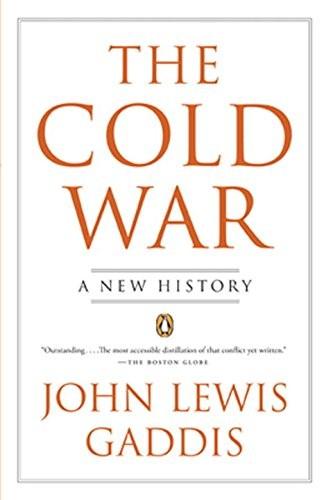
The Cold War: A New History
by
John Lewis Gaddis
Published 1 Jan 2005
Unwilling to admit the mistake, Andropov maintained that the incident had been a “sophisticated provocation organized by the U.S. special services.”74 Then something even scarier happened that attracted no public notice. The United States and its NATO allies had for years carried out fall military exercises, but the ones that took place in November—designated “Able Archer 83”—involved a higher level of leadership participation than was usual. The Soviet intelligence agencies kept a close watch on these maneuvers, and their reports caused Andropov and his top aides to conclude—briefly—that a nuclear attack was imminent. It was probably the most dangerous moment since the Cuban missile crisis, and yet no one in Washington knew of it until a well-placed spy in the K.G.B.’s London headquarters alerted British intelligence, which passed the information along to the Americans.75 That definitely got Reagan’s attention.
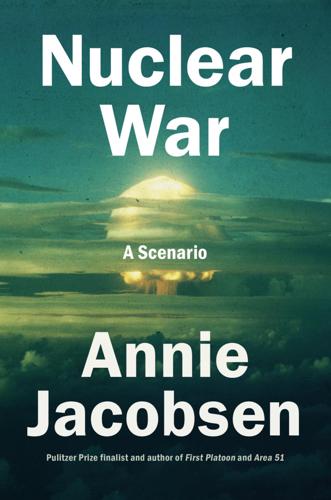
Nuclear War: A Scenario
by
Annie Jacobsen
Published 25 Mar 2024
Operation Paperclip: The Secret Intelligence Program That Brought Nazi Scientists to America. New York: Little, Brown, 2014. Jacobsen, Annie. The Pentagon’s Brain: An Uncensored History of DARPA, America’s Top Secret Military Research Agency. New York: Little, Brown, 2015. Jones, Nate. Able Archer 83: The Secret History of the NATO Exercise That Almost Triggered Nuclear War. New York: New Press, 2016. Kaplan, Fred. The Wizards of Armageddon. New York: Simon & Schuster, 1983. Kearny, Cresson H. Nuclear War Survival Skills: Lifesaving Nuclear Facts and Self-Help Instructions. Updated and expanded 1987 edition, with foreword by Dr.
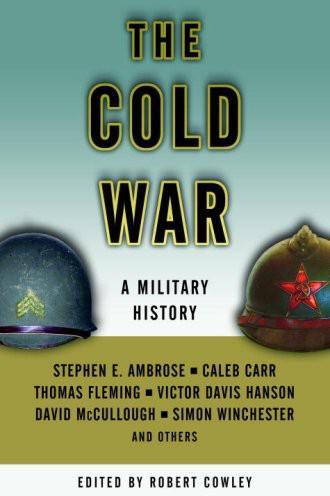
The Cold War
by
Robert Cowley
Published 5 May 1992
The United States exhibited outrage after a bombing in Beirut that destroyed a barracks and killed almost 250 U.S. Marines. Only days later, the Americans invaded the Caribbean island of Grenada, a friend of Moscow's ally Cuba. Washington appeared to be in an aggressive mood. In this charged atmosphere occurred a NATO military exercise called Able Archer 83, scheduled to last from November 2 through November 11. A socalled command post exercise in which only headquarters and higher echelons participated, Able Archer tested “nuclear release procedures.” While the U.S. government obviously would have the key role in ordering the use of such weapons in wartime, the decision would have to be ratified by a standing committee of NATO national representatives, part of the chain of command.
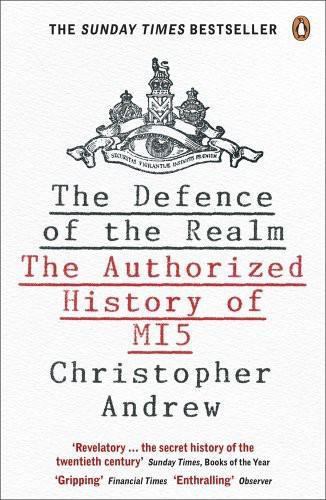
The Defence of the Realm
by
Christopher Andrew
Published 2 Aug 2010
Almost as bizarre was the Centre’s suggestion that leading clerics and international bankers might be given advance warning of the NATO nuclear first strike.84 On 28 September the terminally ill Soviet leader, Yuri Andropov, issued from his sickbed a denunciation of US and NATO policy couched in apocalyptic language unprecedented since the depths of the Cold War: ‘The Reagan administration, in its imperial ambitions, goes so far that one even begins to doubt whether Washington has any brakes at all preventing it from crossing the point at which any sober-minded person must stop.’ The KGB took its cue from Andropov. The Centre’s alarmism reached its peak during the NATO command-post exercise ABLE ARCHER 83, held from 2 to 11 November to practise nuclear-release procedures, which it feared might be used as cover for beginning the countdown to an actual first strike. Gordievsky passed to his SIS case officer, who informed MI5, a telegram from the Centre to the London residency on 5 November warning that, once the preliminary decision was taken to go ahead with a first strike, nuclear missiles were likely to be launched within a week to ten days.
…
Guk was therefore instructed to pay particular attention to ‘unusual activity at the Prime Minister’s residence at 10 Downing Street, where there will be energetic consultations without informing the press’.85 Gordievsky, wrote Sir Geoffrey Howe later, ‘left us in no doubt of the extraordinary but genuine Russian fear of real-life nuclear strike’.86 Gordievsky reported that in the annual review of the work of the London residency at the end of 1983, Guk felt forced to admit ‘shortcomings’ in failing to obtain the (non-existent) intelligence demanded by the Centre on ‘specific American and NATO plans for the preparation of surprise nuclear missile attack against the USSR’. During the early months of 1984, however, helped by the death of Andropov on 9 February and reassuring signals from London and Washington (prompted, particularly in the British case, by knowledge of the fears generated by ABLE ARCHER 83), the mood in Moscow gradually lightened. Andropov’s successor and former rival, Konstantin Chernenko, was already in failing health and had only a year to live, but he was less morbidly suspicious of Western surprise attack than Andropov had become at the end of his life. A marginal lessening of East–West tension was evident even at Andropov’s funeral, attended by Mrs Thatcher and other Western dignitaries.
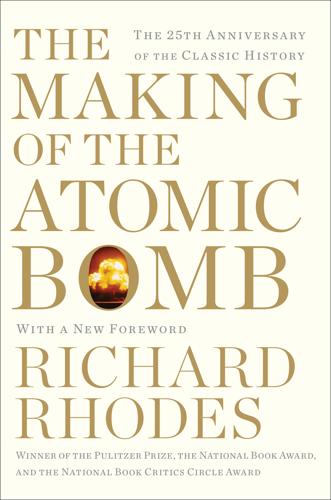
The Making of the Atomic Bomb
by
Richard Rhodes
Published 17 Sep 2012
Nuclear weapons, encapsulating potential human violence at its most indiscriminate extreme, paradoxically demonstrate the reductio ad absurdum of man-made death. The years since 1945 have been a dangerous but unavoidable learning experience. On many more occasions than the Cuban Missile Crisis and the near-debacle of Able Archer 83, I’ve been told, we almost lost our way. We will confront such risk again, and may we be so lucky the next time, and the next after that. Or perhaps the disaster will break in some other hemisphere and the millions who will die will fall under another flag. It won’t take much to involve the rest of us even at a ten-thousandmile remove.